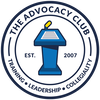|
Edward Jones, the investment dealer, just placed an ad on a website that connects to their proprietary blog post on Elevator Speech Techniques. Here is the link. I commend it to junior professionals. How does it apply to lawyers? Let's look at the 5 tips and apply them. Just like in the Advocacy Club.
1. State your goalThis means to make a plan. We are talking about chance encounters of anywhere from 30 seconds to a few minutes. How do you plan for that? You know the opportunity will occur and recur. So, think about what you will say if you meet someone you want to impress. Start by identifying your unique value proposition. You are not "just" a lawyer. You have areas of competence. You have a way to resolve client problems. You have experience dealing with certain issues. Use a few sentences to describe your model client, what you will do for that client and what makes you different. With this, you know who should hire you and why. That is a good start. 2. Explain yourself Whatever your goal, express it by replacing "I am a lawyer working with XYZ" with your value proposition. Perhaps, "I help real estate clients through their transactions painlessly." Or, "I enable family law clients achieve win-win solutions". Think it through. Why would someone retain you? Yes, include your firm name. But that is not the selling proposition. You are. 3. State your proposition When you explained yourself (above), you made the introduction. Now, sell yourself. How do you do what you claim? Express your technique in a few sentences. It can be difficult to shorten a business model to a couple of sentences. Figure out how to do it. Then practice in front of a mirror. Practice on your friends. Practice on your colleagues. Record your pitch on your cellphone and listen to it. Carefully. Ask for feedback. Whatever it takes, make it simple. Make it heartfelt. Make it effective. You say that you are a lawyer? Well, persuade. 4. Show your personality This is not easy in a 30 second presentation between the third and fifth floors of the court house. Use simple language, short sentences, speak slowly, and look your interlocutor in the eyes (don't stare!) That is about as good as it gets. 5. End on a high note This really means to end on a note that encourages further engagement. You might hand over your business card, but that rarely convinces anyone. Better, you should ask for their business card. Take a moment to study it. Really care about what you are reading. Make a comment about it. And bonus- it helps you remember their name. Then, follow up with a (handwritten?) note that has your contact information and a link to your web presence. I am not a fan of using a "call to action" in an elevator speech. Meet, present and then follow up later. That is the formula. You cannot close the deal in a couple of minutes. All you can do is open the door to a further interaction. 6. Be consistent There is no sixth point in the Edward Jones blog post. But there should be one. Make sure that your web presence is consistent with your elevator pitch. For example, don't stress a pit-bull reputation on your website and sweetness in your elevator pitch. Don't stress your informal attitude in person, and show a serious black business suit on your website. Be consistent. Many elevator speech opportunities occur at cocktail parties. For tips about how to handle yourself there, check out Eugene Meehan's blog post here. For more tips and techniques about professionalism, check out the podcast interviews at Chat with Lawyers. By John Hollander, MBC Law Professional Corporation
1 Comment
Networking is an artificial human social experiment. Put some well-dressed, well-educated, well-spoken people who don’t know each other in a closed room. Force them to interact. I am of two minds about networking. Sometimes I return from an event all excited. Sometimes I return muttering, “awkward, awkward, awkward.” Then I analyze the awkward, awkward, awkward times. I see that I rushed, trying to meet as many people as possible, not starting smooth conversations. I also felt like it was my job to fill the silence. After many of these situations, I have learned to relax at such events. Silence can be comfortable. More often than not, someone in the little circle starts a new conversation. It is okay to go alone to a networking event and “work the room”. Walk in with confidence. If you see someone hanging out in the corner alone, go introduce yourself. If everyone seems to be standing in closed circles akin to a middle school playground, go grab some food or drink. Most often, someone will approach you. At networking events, you obviously start each encounter with a handshake and your name. Don’t linger around these circles and second guess if you should nudge your way in. You are important when you join a conversation. Be bold. Introduce yourself. Have a tag line for how you describe what you do. “Hi, I’m Ceilidh. I am a family law practitioner.” The conversation will flow naturally into where you work, in what area of law, and where you articled or juniored. Try to make connections and ask open-ended questions. Show that you are interested in the answer, e.g “How did you find articling in criminal law?” Listen intently, make and keep eye contact, and find connections with the person. Weave in ways to tell them about yourself, such as “I did a little bit of work in criminal law, but it wasn’t for me. So now I practise family law.” I really enjoy connecting lawyers to other lawyers. I find it’s a great way to share your card without looking like a moron. If I know someone who I think this person would like and relate to, I would say, “My friend has started a criminal practice. Here’s my email address. (Hand over card) Send me an email, and I will put you two in touch.” If your converser gives you a card, take a moment to read it. Compliment something about it. Then, when you return to your office, send an email to provide the promised information. Say how nice it was for you to meet and refer to something you talked about. One networking skill that I am still trying to master is the polite exit. When the conversation has exhausted itself don’t be afraid to smile and nod and say, “It was really nice talking to you.” by Ceilidh Henderson, Advocacy Club Member Ceilidh practises Family Law and Child Protection Law, in partnership with Altynay Teshebaeva. Email: [email protected]. Say you attend a cocktail party or some other meet-and-greet occasion. Someone learns you practise law. You are asked for advice. How should you deal with that? To start with, I don’t give advice, except legal advice. And then, only at the office. Even doctors don’t give free medical advice at a cocktail or reception. And dentists don’t extract teeth over wine and cheese, either. At parties, no one wants (or needs) advice. They want validation, confirmation, acknowledgement. Even when they’re asking for advice – they’re not, really. So with that in mind, I offer only a few ‘suggestions’, from my own experience:
by Eugene Meehan, QC, Advocacy Club Presenter Eugene’s email: [email protected] |
Guest BlogWelcome to the Advocacy Club's guest blog. Here you will find mentoring tips and techniques from some of John Hollander's students and associates. Archives
November 2017
Categories
All
|
© 2022 Advocacy Club Books Inc. • All Rights Reserved • Website Design by Rebecca K. Hollander
E-mail: [email protected]
LinkedIn: linkedin.com/in/john-hollander-80687112
E-mail: [email protected]
LinkedIn: linkedin.com/in/john-hollander-80687112




 RSS Feed
RSS Feed